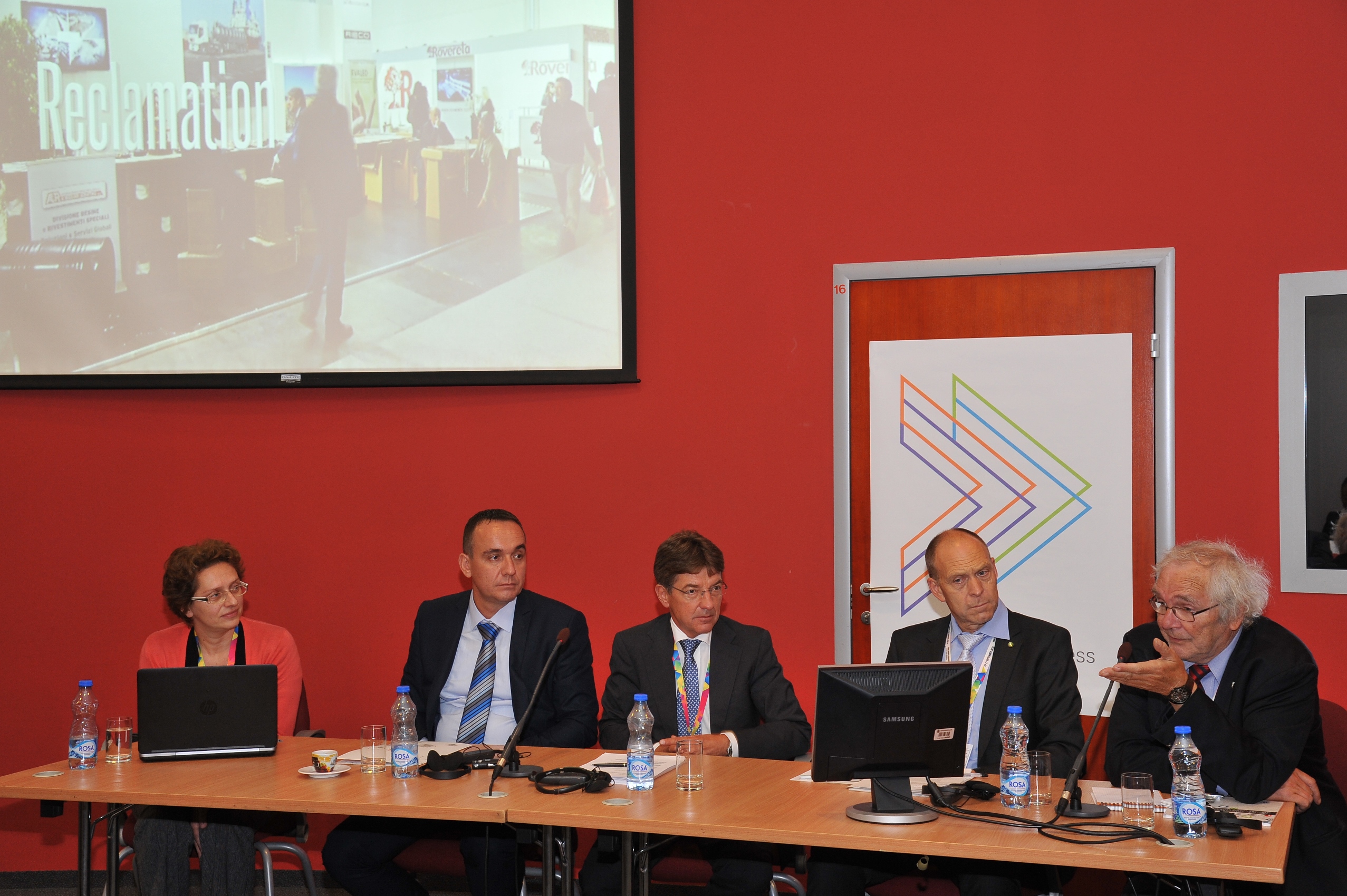How to align standards with the EU, one of the conditions that Serbia will have to meet is the introduction of circular economy in the process of production itself, or the use of waste as a resource in the industry. To make this possible it is necessary to: Increase the level of recycling, solve the problem of hazardous and historical waste and enable cooperation between the public and the private sector in order to create a favorable business environment for new investors – this was the conclusion of the panel “A new chapter in the hazardous waste management in Serbia”, that was held in Novi Sad, organized by Miteco and ISWA World Congress 2016.
The Chairman of ISWA Working Group on Hazardous Waste, Jean-Paul Leglise, spoke about the activities on the preparation of a manual for the hazardous waste management, which is being implemented in cooperation with UNEP and UNIDO.
“This manual will be the best of this type, interactive and available online, with the idea that all participants involved in this process with their comments and suggestions in order to improve hazardous waste management practices and the creation of manuals that will find wide application in the industry,” said Leglise.
Professor at the University of Natural Resources and Applied Sciences in Vienna, Dr Stefan Salhofer, spoke about the role of manufacturers, importers and traders in the area of electronic waste, and the recycling industry prospects for each country.
“Recycling of electronic waste is not only a question of protecting the environment, but it is also an important economic issue, because this area opens up opportunities for new jobs and contributes to economic development, which is why a good quality recycling system is a requirement for every country,” said Salhofer.
Speaking on the current revision of EU legislation in waste management, domestic and foreign experts have pointed out that the global challenge in the industry today is the achievement of sustainable development and use of resources in an environmentally sound manner. How this would be achieved, it is necessary to improve the waste market, which would facilitate the achievement of the full potential of this sector, Peter Hodecek said, representative of the European Federation of Waste Management “FEAD”.
“By effective functioning of the waste in the EU, 72 billion euros a year will be saved (thanks to the full implementation of EU legislation), the annual turnover of the waste management and recycling sector in the EU should be increased to 42 billion and would create the conditions for establishing over 400,000 jobs the European market by 2020,”says Hodecek.
The panelists noted that the re-use of already used materials is crucial for providing resources for industrial facilities, and that the new Regulation stipulates that the ash as a construction material, may be used in the construction, reconstruction, repair and maintenance of infrastructural facilities, which contributes to the sustainability of the entire system.
“In this way, multiple contribution of ash as a secondary raw material is reflected in its use for commercial purposes, reduction of pollution and improvement of the environmentquality,” said Nenad Markovic, director for energy production, JP EPS, Branch “TE-KO Kostolac” .
In addition to the introduction of circular economy (use of waste as a resource), countries in transition, have a problem with historic waste and historical pollution. This is corroborated by the fact that the rate of historical pollution in Serbia annually is over 100,000 tons. The deadline for solving this problem is until 2019, which is why the management of hazardous waste will be an area that will in future require an integrated approach of all relevant participants in the protection of the environment. One of the priorities will certainly be synchronisation of the national with the European legislation in the field of waste management, administration through capacity building and improvement of infrastructure for environment protection.
The panel participants were Jean-Paul Leglise, Chairman of the ISWA Working Group on Hazardous Waste, Dr Stefan Salhofer, University of Natural Resources and Applied Sciences in Vienna, Peter Hodecek, representative of the European Federation of Waste Management “FEAD” and Nenad Marković, director for energy production JP EPS, Branch “TE-KO Kostolac”.
